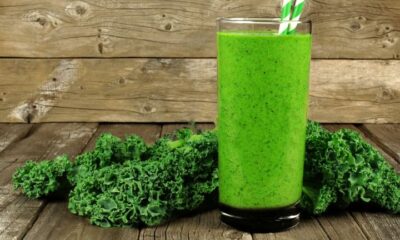Nutrition
Foods We Once Thought Were Healthy But Aren’t
Published
11 months agoon

Shutterstock
Many of us strive to lead healthier lives through our dietary choices, often navigating nutritional information to select foods we believe are beneficial. The landscape of nutrition is ever-evolving, with foods once deemed healthy reconsidered in light of new scientific findings. As well as trying to decipher which foods genuinely contribute to a healthy diet and which have been promoted through clever marketing rather than solid nutritional science.
Although this evolving understanding of nutrition can make the pursuit of a healthy diet seem like navigating a minefield, we have gathered a list to help. Let’s take a look at 26 foods that were once seen as healthy but aren’t anymore.
Granola Bars
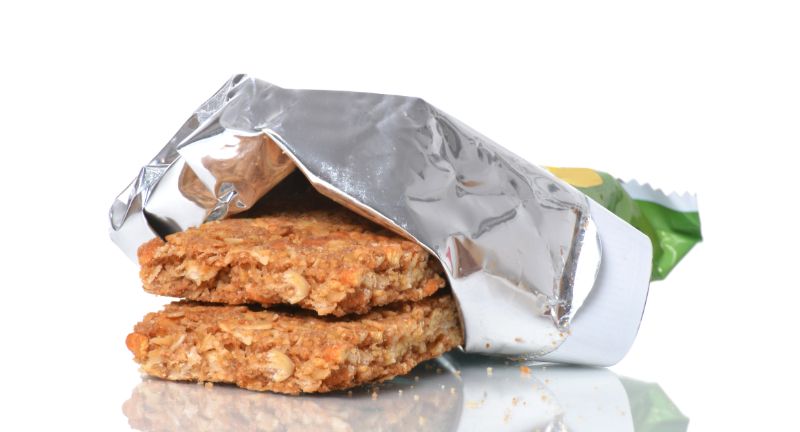
Shutterstock
Granola bars were first marketed as a convenient and healthy snack option, often touted for their high fiber and whole grain content. Seen at some point as healthy due to their association with natural ingredients like oats, nuts, and dried fruits, which seem nutritious. The reality is many granola bars are loaded with added sugars, unhealthy fats, and artificial additives to enhance flavor and prolong shelf life. This undermines their health benefits and making them more akin to a candy bar than a wholesome snack.
Flavored Yogurts
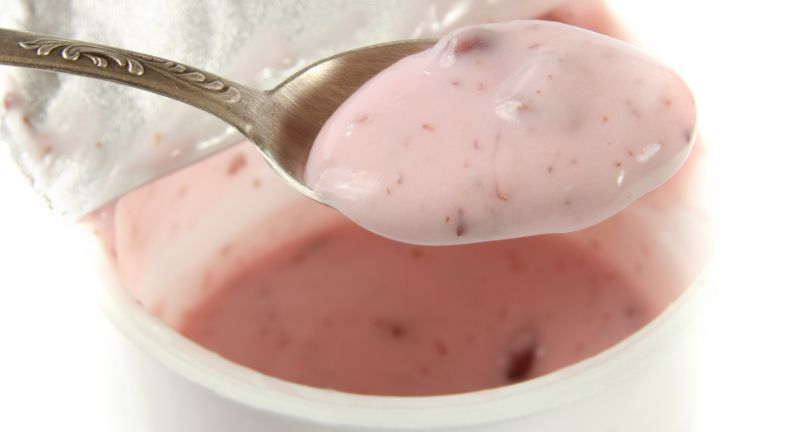
Shutterstock
Flavored yogurts were thought to be a nutritious breakfast or snack, praised for high protein content and probiotics, which support gut health. The positive association with dairy products and the fact that yogurt by itself is a wholesome food choice made this product perceived as a healthy breakfast. Many flavored yogurts contain high amounts of added sugars and artificial flavorings to enhance taste, negating their health benefits and contributing to issues like obesity and diabetes.
Diet Sodas

Shutterstock
Diet sodas were first introduced in the 1950s, targeting consumers looking for low-calorie beverage options under the premise of offering the sweet taste of soda without the calories. They were marketed as a healthier alternative to regular sodas, claiming benefits like weight control and reduced sugar intake. Over time, concerns have grown regarding the safety and health effects of artificial sweeteners used in diet sodas, leading to debates and research on their potential links to health issues such as metabolic syndrome, cardiovascular diseases, and changes in gut microbiota.
Margarine

Shutterstock
Margarine was long thought to be a healthier alternative to butter, praised for its lower saturated fat content and cholesterol-lowering properties. The perceived health benefits included a reduced risk of cardiovascular disease. Margarine products often contains trans fats, which are linked to an increased risk of heart disease, challenging its reputation as a healthier option and had lead to a shift in consumer preferences towards butter or healthier plant-based spreads.
Gluten-Free Processed Foods
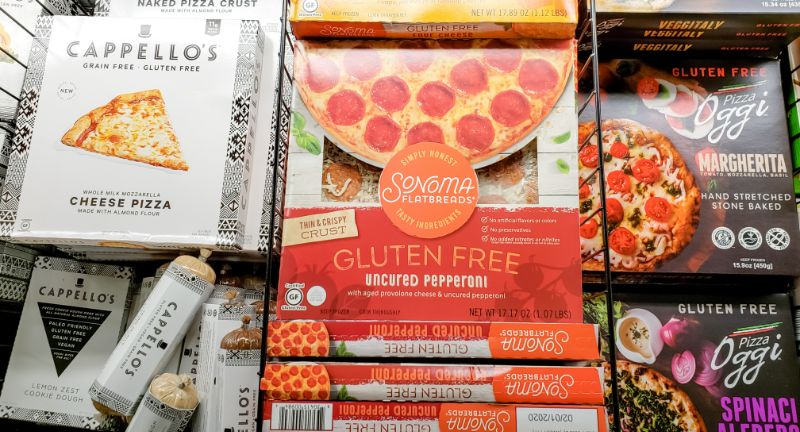
Shutterstock
The introduction of gluten-free processed and packaged foods was seen as a game changer for individuals with celiac disease or gluten sensitivities looking for suitable alternatives to everyday foods. Unfortunately, many gluten-free processed foods are often high in refined carbohydrates, added sugars, and unhealthy fats to improve taste and texture, lacking the nutritional benefits of whole grains and contributing to issues like weight gain and metabolic disorders.
Sports Drinks
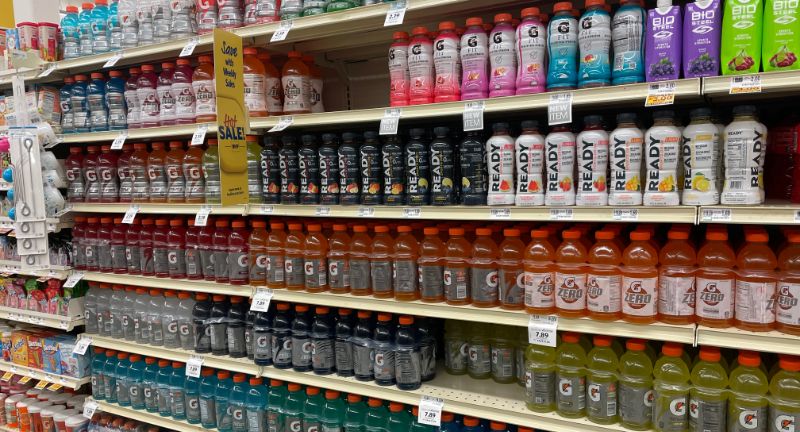
Shutterstock
Introduced in the 1960s, sports drinks were marketed as essential beverages for athletes and fitness enthusiasts, promoted for their ability to replenish electrolytes and provide energy during intense physical activity. In recent years, these beverages have come under scrutiny due to their high sugar content and potential adverse health effects, leading some to view them as unhealthy beverages contributing to issues like obesity and dental cavities.
Processed Plant-Based Burgers
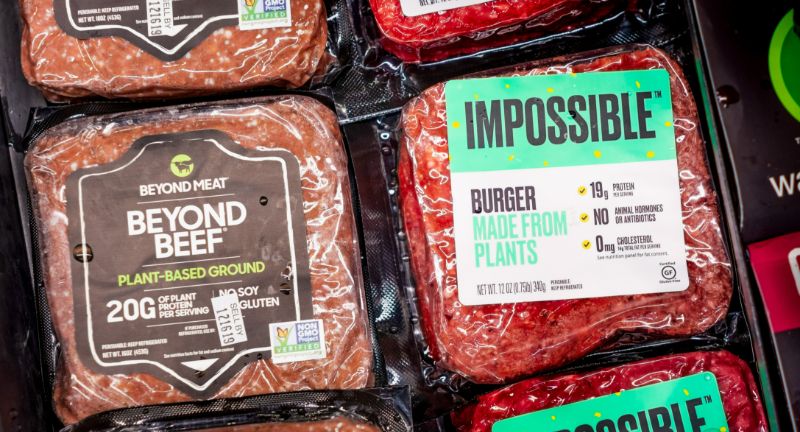
Shutterstock
Processed plant-based burgers began to enter grocery stores in the early 2010s and were initially seen as a healthier option compared to traditional beef burgers. Offering benefits such as lower saturated fat and cholesterol content, as well as being environmentally sustainable. As time has went on, some research shows evidence that plant-based burgers are likely to contain high levels of sodium, unhealthy fats, and additives to improve taste and texture.
Rice Cakes
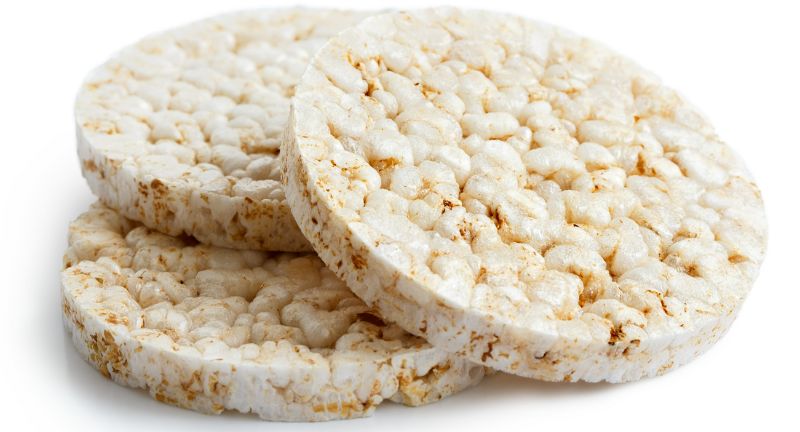
Shutterstock
A low-calorie and weight-loss snack that has been praised for simplicity, low fat content, and being gluten-free. Rice cakes were initially popular for their minimal calorie content, but over time it’s become known that there is a trade off. Rice cakes have a high glycemic index, meaning they can cause spikes in blood sugar levels, and lack essential nutrients and fiber, making them a less nutritious choice compared to whole grains.
Fat-Free Snacks
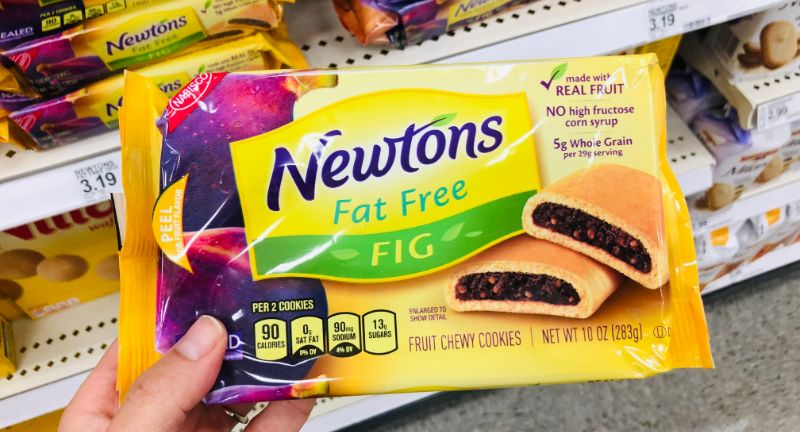
Shutterstock
Fat-free snacks became widely popular in the 1990s, marketed towards individuals seeking to lose weight or lower their intake of dietary fat, under the belief that fat-free meant healthier. These snacks were positioned as beneficial for heart health and weight management, aligning with dietary trends of the time that vilified fat. Concerns have since arose, as many fat-free products were found to contain high amounts of sugar and artificial additives to compensate for lost flavor, leading to questions about their nutritional value and their impact on health, including potential links to increased sugar consumption and weight gain.
Veggie Straws

Shutterstock
Veggie straws are often seen as a healthy snack compared to other options in the potato chip aisle at the grocery store. Often marketed to be made from vegetables like potatoes, spinach, or tomatoes and are portrayed as a lower-fat snack option. Unfortunately, many veggie straw snack options are high in refined carbohydrates, sodium, and unhealthy fats, often containing minimal vegetable content and artificial additives, which can contribute to issues like weight gain and blood sugar spikes.
Low-Fat Peanut Butter

Shutterstock
In the 1990s, reduced and low fat peanut butter options entered grocery stores nationwide. Targeting health-conscious consumers looking to reduce fat intake without sacrificing their favorite foods. It was marketed as a healthier alternative to regular peanut butter, with benefits such as lower total fat content, which was believed to support heart health and weight management. Over time, skepticism grew as many realized that the reduction in fat often meant an increase in added sugars or fillers to maintain flavor, potentially negating the intended health benefits and contributing to increased sugar consumption.
Reduced-Fat Salad Dressings

Shutterstock
Reduced-fat salad dressings were believed to be a lighter alternative to regular dressings, promoting lower fat content. Those concerned about weight management and heart health perceived this to be a healthy option because they were marketed as lower in calories and fat. Turns out many reduced-fat salad dressings often contain higher amounts of added sugars, artificial additives, and sodium to compensate for the reduction in fat, undermining their health benefits and contributing to issues like weight gain and poor heart health.
Artificial Sweeteners

Shutterstock
Artificial sweeteners were introduced as a calorie-free alternative to sugar, appealing to those looking to reduce calorie intake or manage conditions like diabetes. This allowed a way to enjoy sweet tastes without the associated health risks of sugar. Despite the initial perception as a healthier option, artificial sweeteners have since been associated with increased appetite, weight gain, and negative impacts on metabolic health in some studies.
Canned Soups
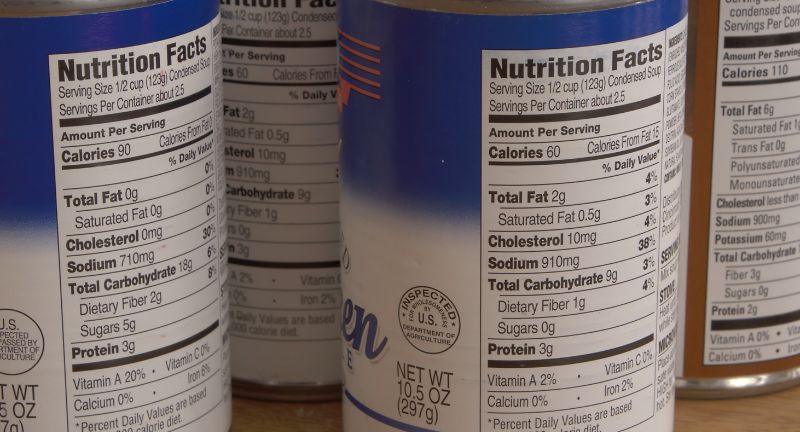
Shutterstock
Canned Soups have long been considered a popular and quick meal solution with the added benefit of having a long shelf life. Often marketed as convenient and nutritious, as well as believed to be healthy because of the ingredients, including vegetables, protein, and grains. It’s important to be aware that many canned soups are high in sodium, preservatives, and unhealthy fats, which can contribute to high blood pressure, cardiovascular disease, and other health issues.
Breakfast Cereals
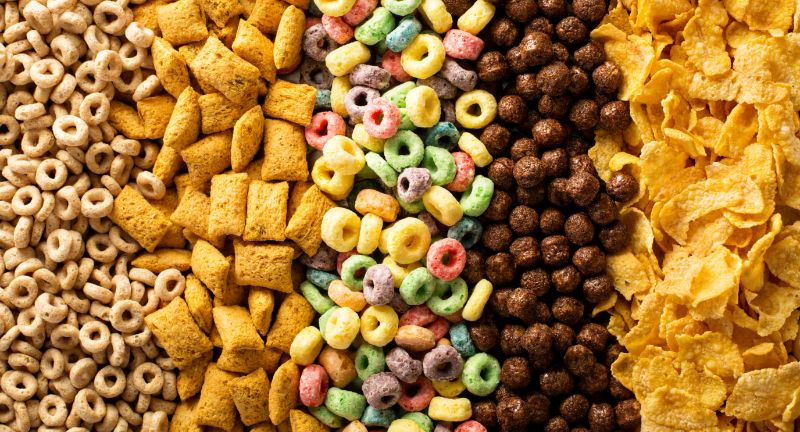
Shutterstock
Marketed broadly to families and individuals as a part of a balanced breakfast, providing a convenient and supposedly healthy start to their day. Cereal boxes commonly boasted health benefits including high fiber content and essential vitamins. Over time, studies have shown that many breakfast cereals contain high sugar content, refined grains, and artificial additives, which can lead to weight gain.
Instant Oatmeal Packets
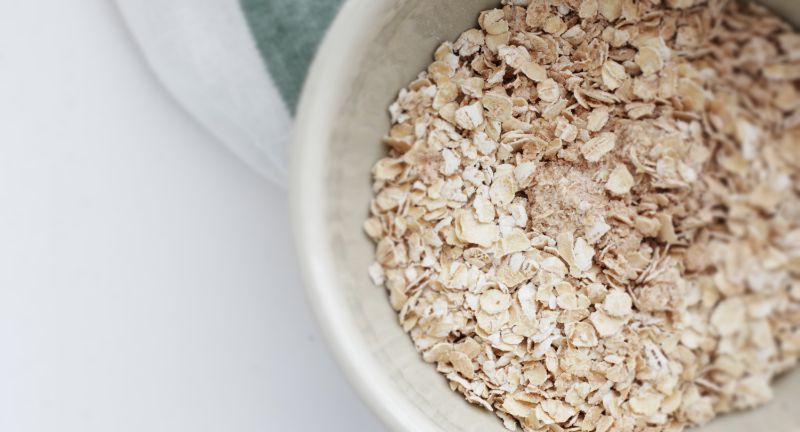
Shutterstock
Instant oatmeal is another breakfast option that has been marketed as quick and nutritious. It was believed instant oatmeal packets were healthy because oats are a whole grain and provide fiber, which can promote satiety and digestive health. Most instant oatmeal packets are actually high in added sugars, artificial flavors, and preservatives, which can negate their health benefits and contribute to health issues like weight gain.
Microwave Popcorn

Shutterstock
Microwave popcorn gained popularity as a convenient alternative to traditional popcorn, celebrated for its ease of preparation and low-calorie content. Unfortunately, microwave popcorn often contains added artificial flavors, preservatives, and fats, making it less healthy in comparison. Additionally, the lining of microwave popcorn bags has been a concern due to chemicals that may leach into the popcorn. Making popcorn the traditional way, by heating oil in a large pot and adding popcorn kernels, is a great source of fiber and low in calories.
Protein Bars
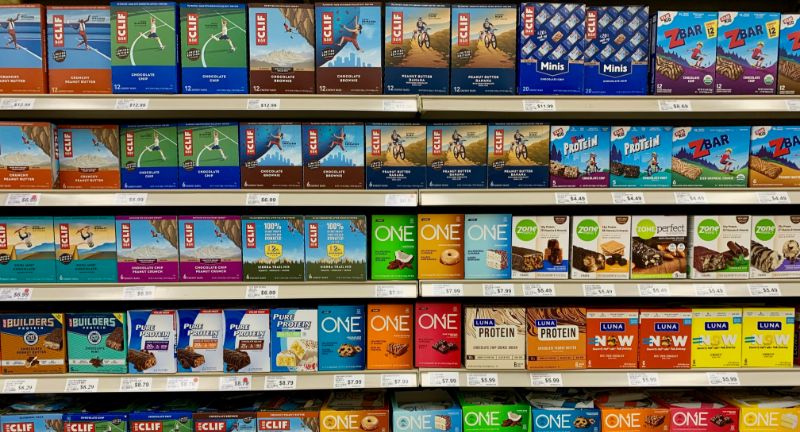
Shutterstock
Introduced in the 1980s, protein bars were marketed to athletes and fitness enthusiasts as a convenient and nutritious snack or meal replacements. Praised for its easy source of protein and ability to support muscle growth and recovery. Some scrutiny arose though when various protein bars were found to contain high levels of sugar, artificial ingredients, and saturated fats, making them more akin to candy bars in nutritional value. This revelation led to a demand for cleaner, more natural ingredients in protein bars.
Bottled Smoothies
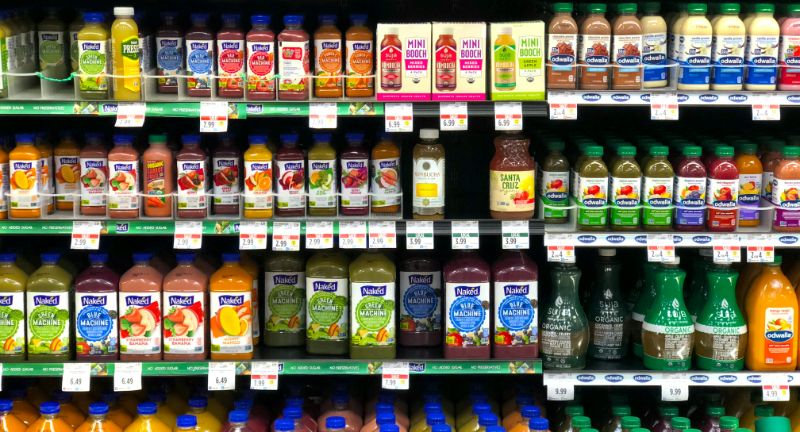
Shutterstock
Another product pitched to be a convenient and nutritious option for people seeking quick, healthy meals on the go. These products often emphasized fruit and vegetable content, added vitamins, and antioxidants. If you look at the nutritional information on many of these bottled smoothies, they are likely to contain high sugar content, often comparable to sugary soft drinks. As well as artificial flavors, preservatives, and the loss of fiber compared to whole fruits. These factors can contribute to weight gain, blood sugar spikes, and nutrient deficiencies.
Multigrain Bread

Shutterstock
First introduced as a healthier alternative to white bread and marketed towards individuals seeking nutritious diet options. This alternative was touted for high fiber content and inclusion of various grains, which were believed to offer greater health benefits, such as improved digestion and nutrient intake. The healthiness of multigrain bread has come into question though after the understanding that “multigrain” doesn’t always mean whole grains are used, potentially leading to lower fiber content and nutritional value than initially perceived. This has led consumers to differentiate between “multigrain” and “whole grain” products for true health benefits.
Low-Fat Ice Cream

Shutterstock
Another product introduced as part of the low-fat diet trend, aimed at consumers seeking healthier dessert options. It was marketed as a guilt-free treat with fewer calories and less fat than traditional ice cream, appealing to those looking to maintain or lose weight. The most common way to compensate for the reduced fat is by increase sugar content and add artificial additives, leading to questions about its overall health benefits.
Energy Drinks

Shutterstock
Energy drinks were first introduced to cater to those seeking a quick energy boost, especially targeting young adults and athletes. Some energy drink brands included health benefits such as caffeine, B-vitamins, and amino acids on the label. Concerns regarding these drinks have arose due to the high amount of added sugars and stimulants like caffeine and taurine, which can lead to issues like increased heart rate, insomnia, and dependency.
Pre-made Salad Kits
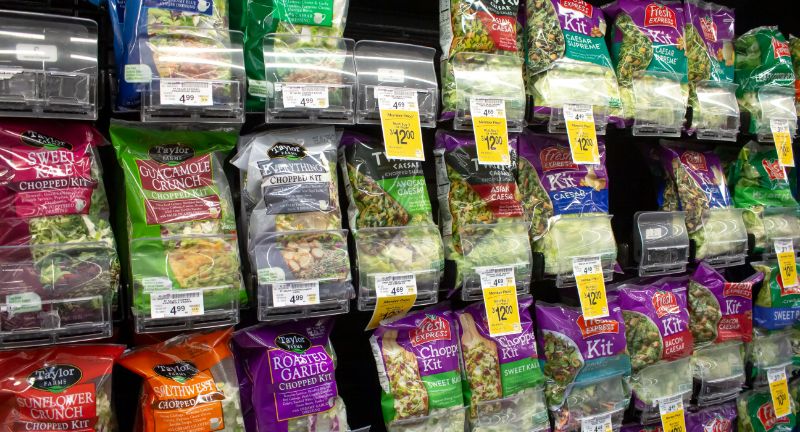
Shutterstock
Pre-made salad kits were marketed as convenient and healthy meal options, praised for their variety of fresh vegetables, toppings, and dressings. These salad kits were believed to be healthy as they contained vegetables, which are rich in essential nutrients and fiber, and provided a quick and easy way to enjoy a salad. But if you look at the nutritional label on many of these kits, you will likely see indicators of high added sugars, unhealthy fats, and sodium, particularly in the dressings and toppings, which can negate their health benefits and contribute to issues like weight gain.
Agave Nectar
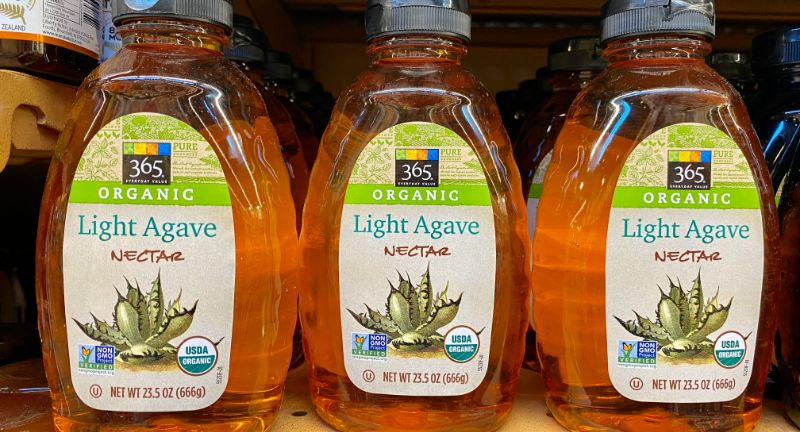
Shutterstock
Agave nectar was marketed as a natural sweetener and healthier alternative to sugar due to its low glycemic index and perceived nutritional value. Thought to be healthy due to its plant-based origin and the belief that it would not spike blood sugar levels as much as other sweeteners. Unfortunately, agave nectar is high in fructose, which can contribute to metabolic problems like insulin resistance, obesity, and fatty liver disease, challenging its reputation as a healthier option for sweetening foods and beverages.
Packaged Fruit Juices

Shutterstock
Fruit juices were marketed as a convenient way to meet daily fruit intake recommendations. Promoted for their vitamin and antioxidant content and gained a positive perception that the beverages provided essential nutrients. Most packaged fruit juices are actually similar to sugary beverages, and lack the health benefits of whole fruits due to fiber being stripped during processing and high amounts of sugars added.
Conclusion

Shutterstock
Navigating the evolving landscape of nutrition requires the combination of critical thinking and continuous learning to make informed dietary decisions. The distinction between genuinely healthy foods and those marketed as such challenges us to stay informed and question prevailing health trends. Ultimately, understanding that dietary wisdom is subject to change emphasizes the importance of staying adaptable and informed in our pursuit of a healthy lifestyle.











